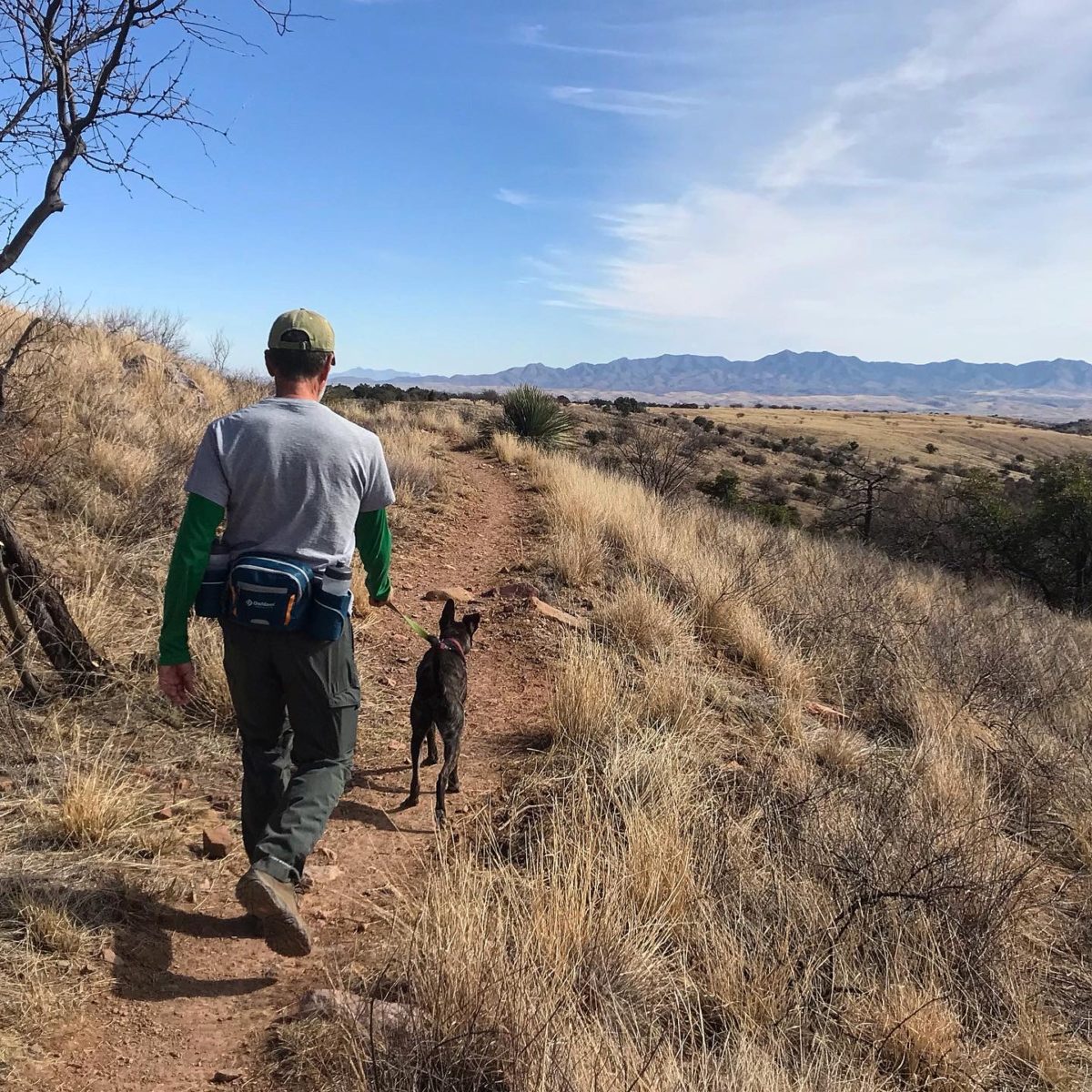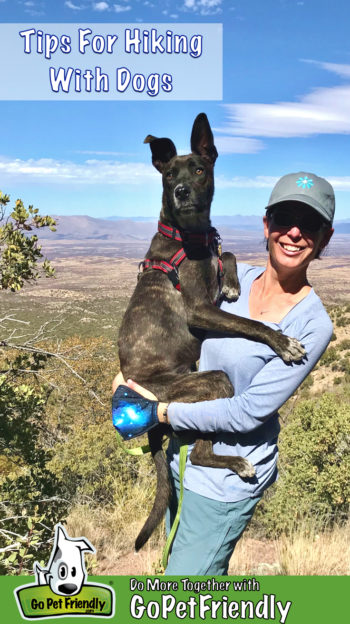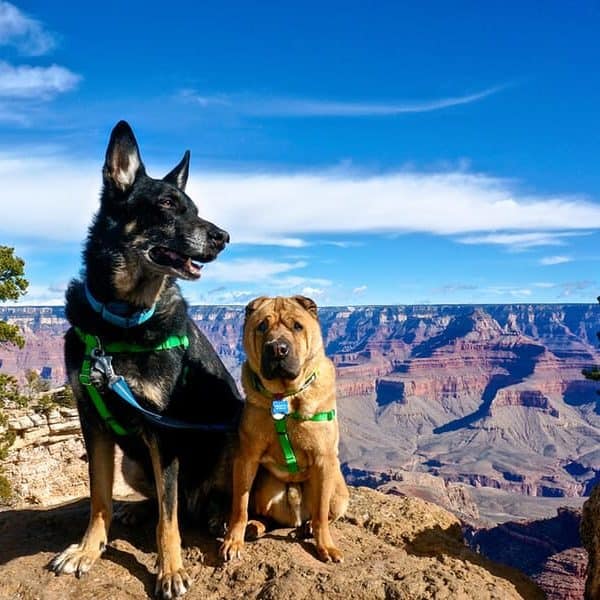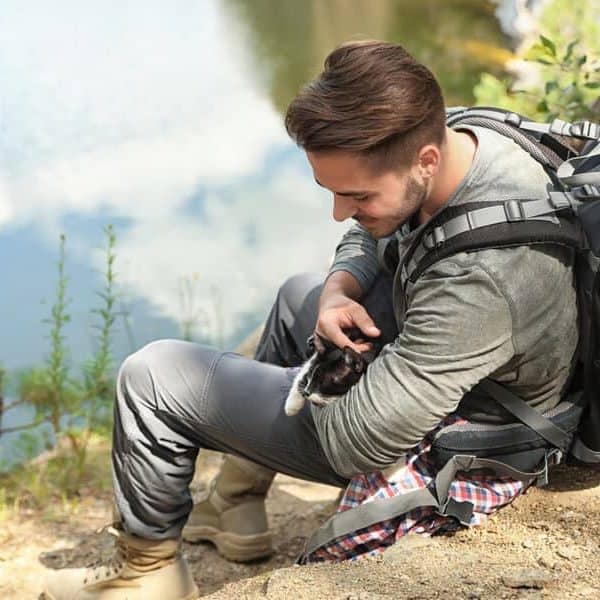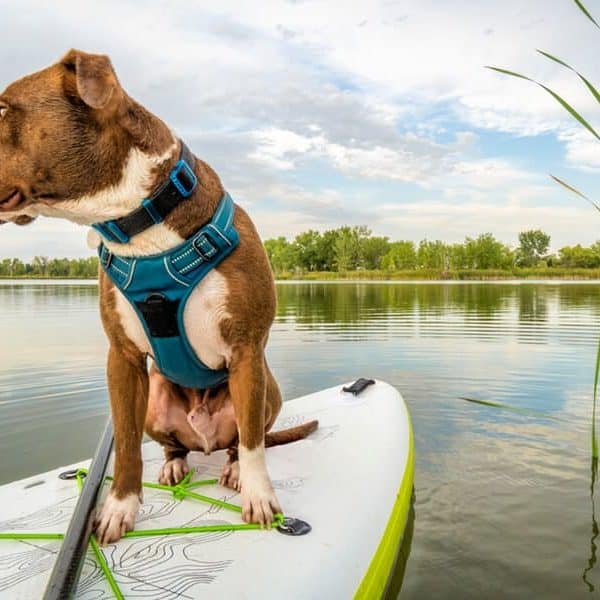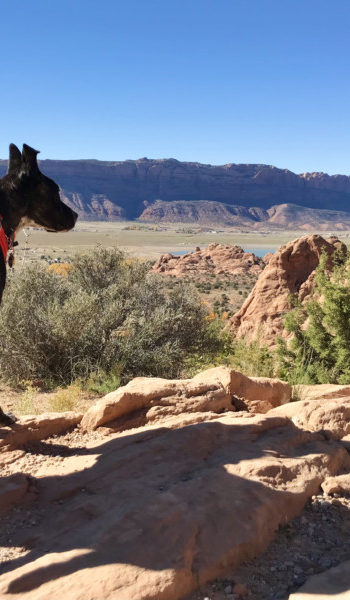Hiking with your dogs is a great way to explore new places! If you love nature and relish a break from the crowds, make time to hit a pet friendly trail or two on your next vacation.
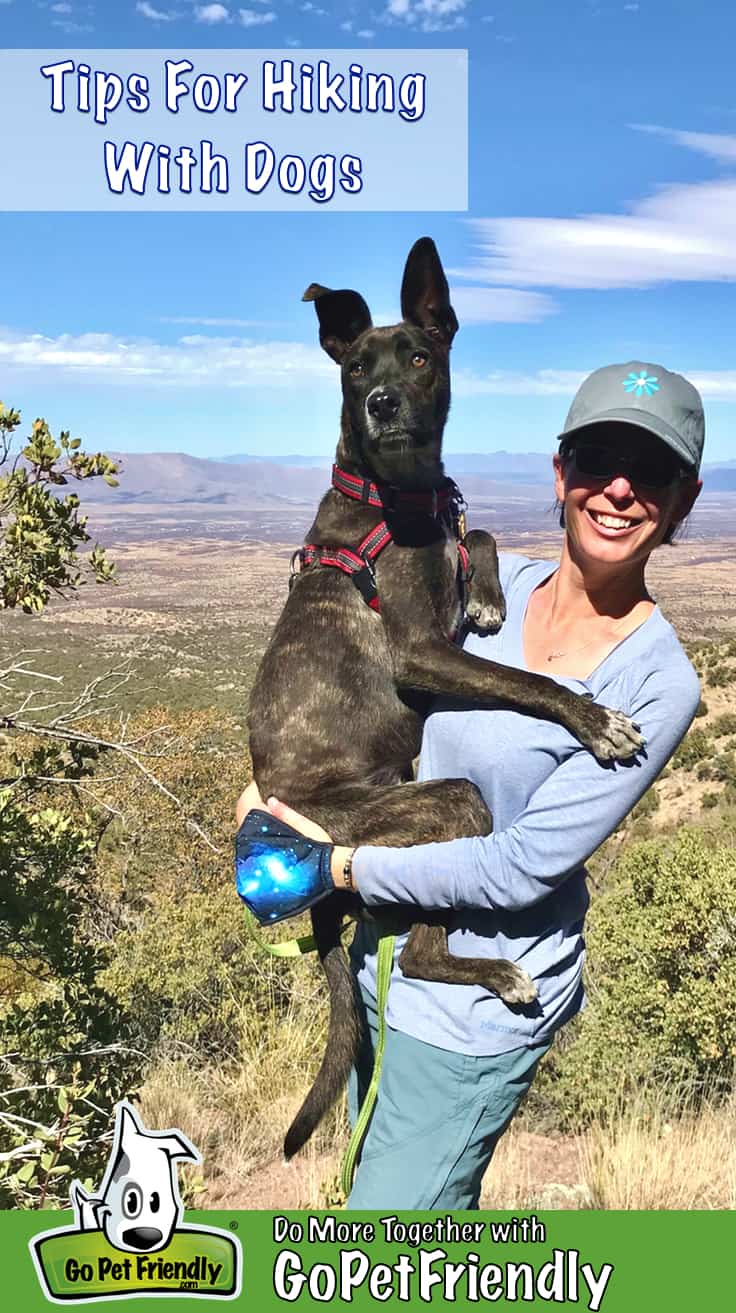
When you’re visiting a new place, it’s easy to get out the guidebook and check off the local attractions. But following the crowd isn’t always the best way to get a true feel for the area. For a more authentic experience, plan to go hiking with your dogs!
Why Go Hiking With Dogs?
Some of you might be wondering what hiking with your dogs can add to your experience when you’re traveling. Over the years, we’ve found that hitting the trail is a great way to enjoy the outdoors, appreciate the vistas that you can’t see from the car, and get a little exercise.
And, because many tourists don’t make time for hiking, pulling on your boots allows you to see things only locals usually know about.
There’s also a chance you’ll meet some fantastic, pet-loving people! And locals who are out hiking with their dogs likely know about other pet friendly things to do in the area. Seize the opportunity to ask other hikers for their advice on more things you and your dog might enjoy doing together.
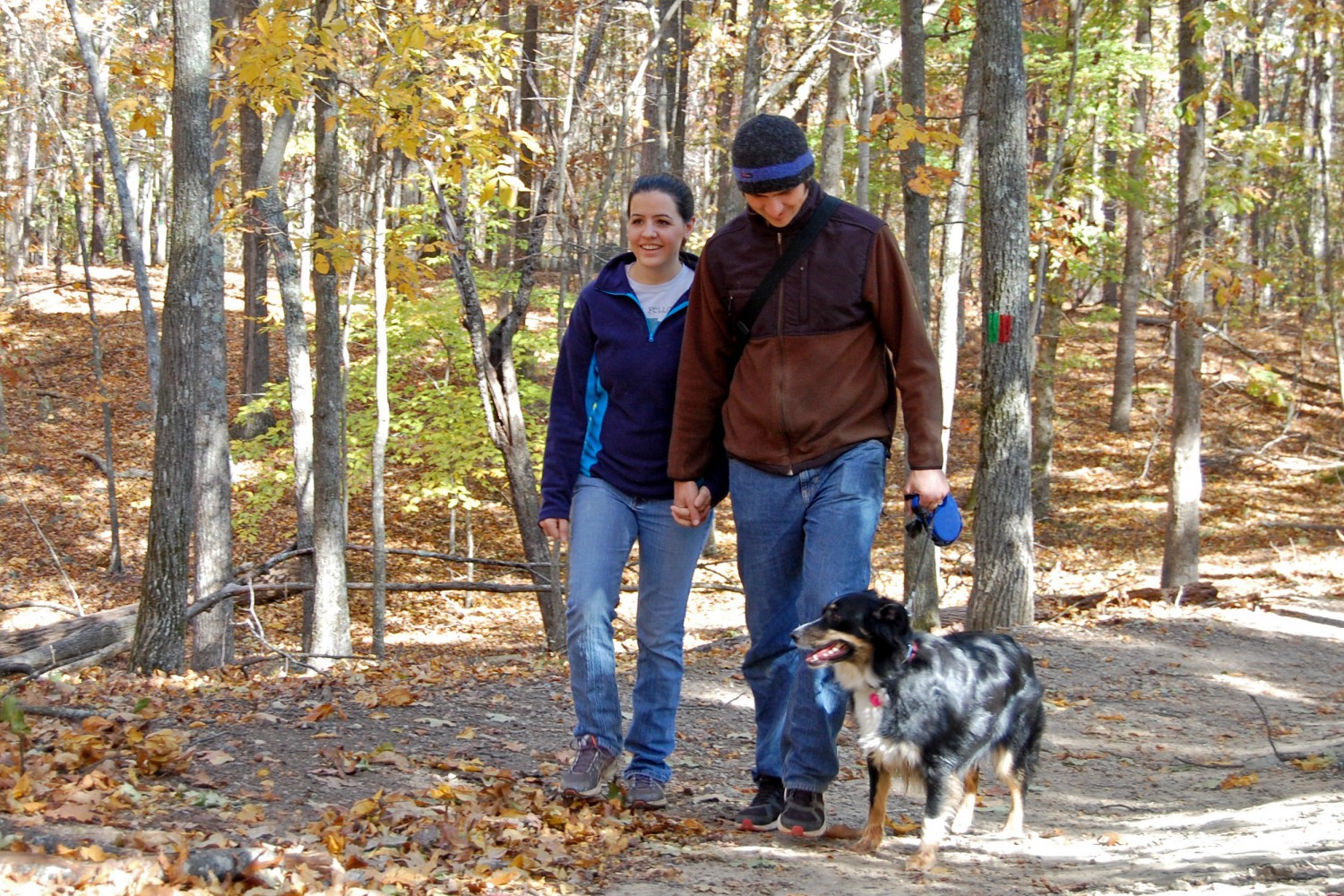
Can You Do It?
The wonderful thing about hiking is that everyone can do it! Whether you start on short, paved trails or set out on a more advanced – there’s an option for people of all abilities.
Apps like AllTrails make it easy to find pet friendly trails with the right level of difficulty. And once you’ve chosen your destination, you’ll just need to make a few preparations to ensure you all stay safe.
READ MORE ⇒ Top American Cities for Dog Friendly Urban Hiking
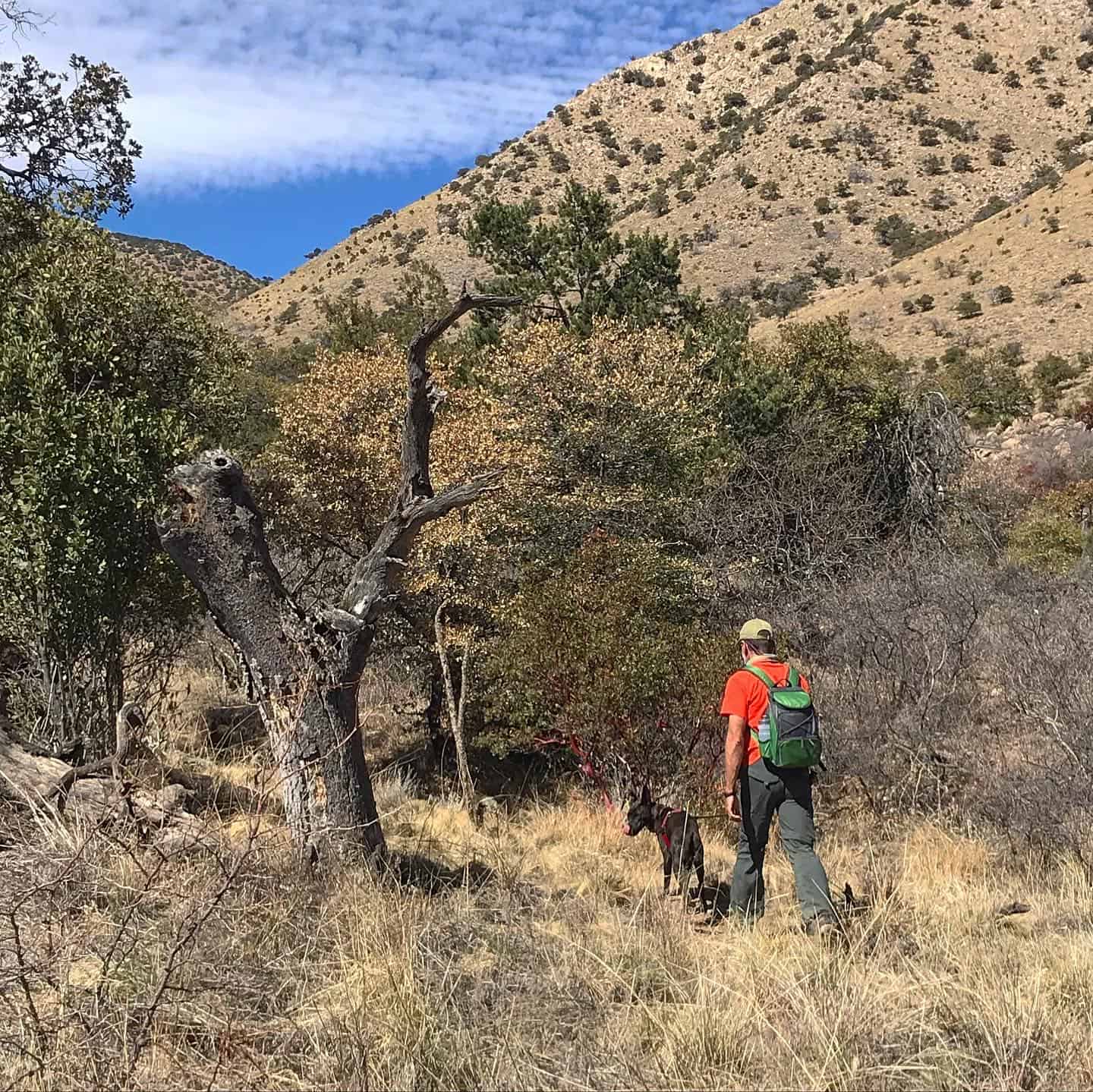
Tips For Hiking With Dogs
1. Consider Your Dog’s Physical Condition
If you’re not sure how your dog will do on a hike, start by lengthening the walks in your neighborhood and slowly build up his endurance. When he’s ready, try some short hikes and then gradually add distance.
If your dog is older or has physical disabilities, choose trails that will accommodate a dog stroller or wheelchair. It’s a little more work for you, but the rewards are well worth the effort.
READ MORE ⇒ Tips For Traveling With Elderly Pets
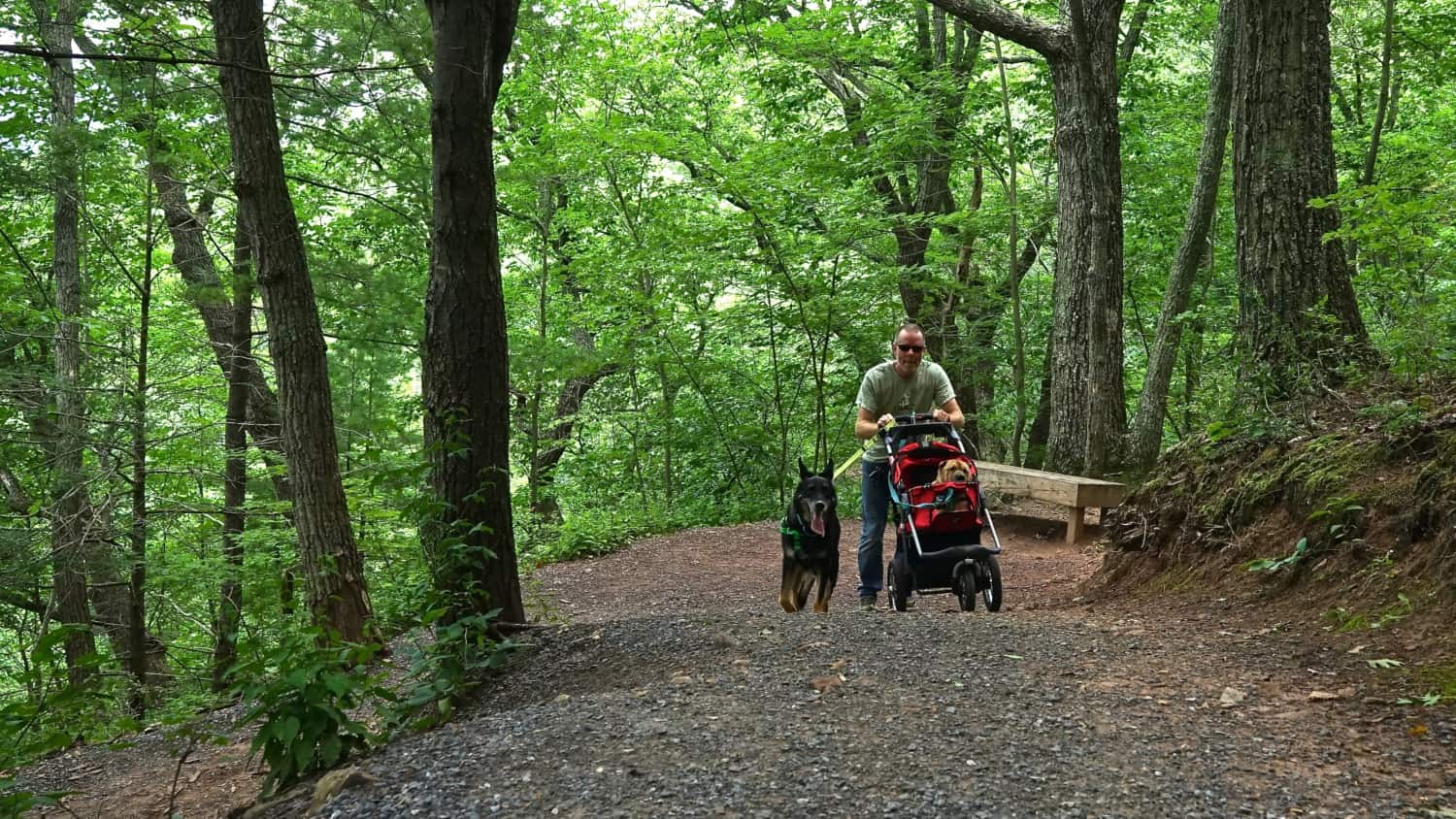
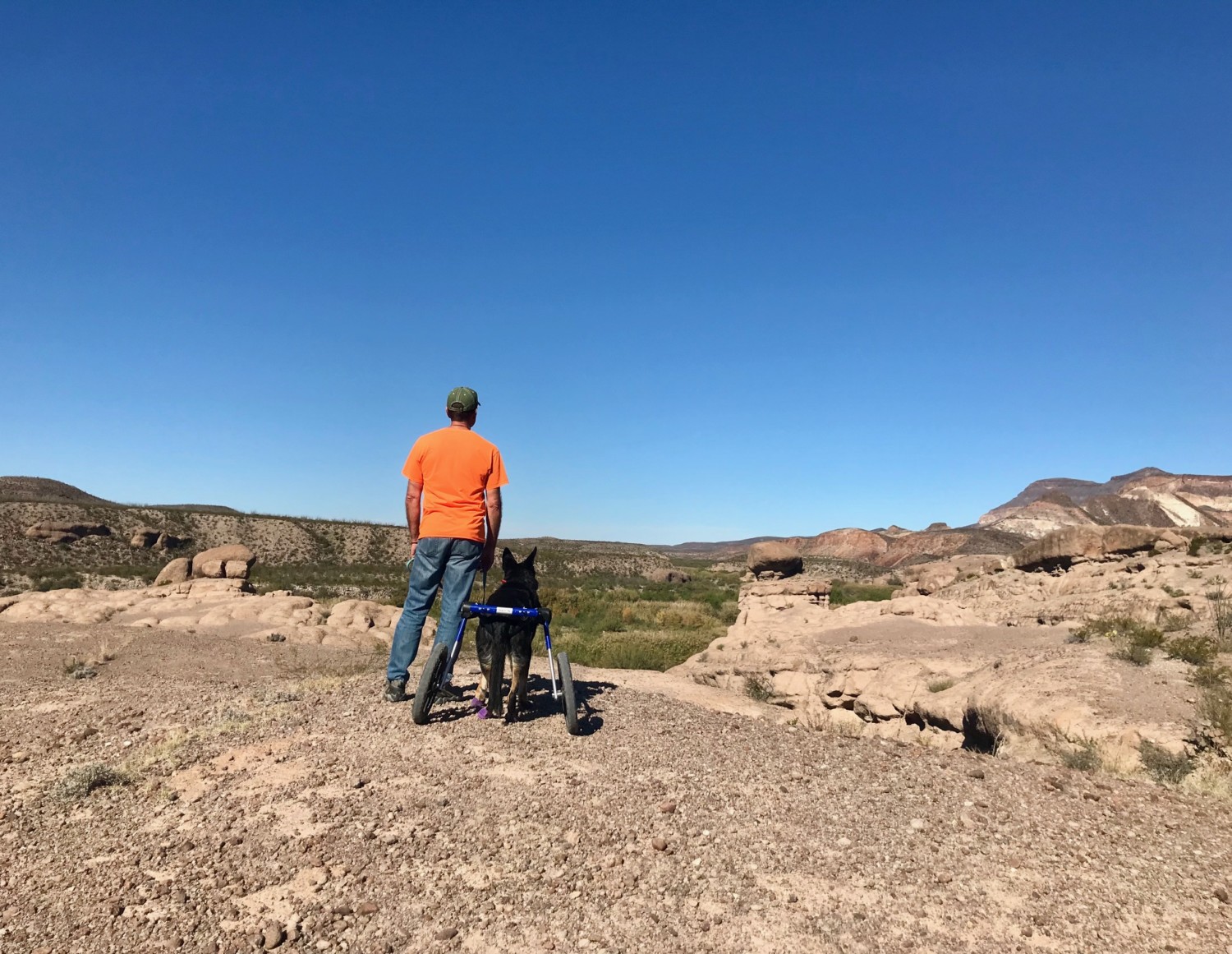
2. Follow The Rules
Whenever you use an online resource to locate pet friendly hikes, it’s important to verify the rules before you go. Policies regarding pets change frequently, so call to confirm on the park’s website, or ask when you arrive where dogs can go and whether leashes are required. Then abide by the trail rules!
Many places have stopped allowing dogs on the trails after complaints about off-leash incidents. If the regulations in one place don’t suit you, find another place to hike.
READ MORE ⇒ Dog Friendly Off Leash Hiking on Federal Lands
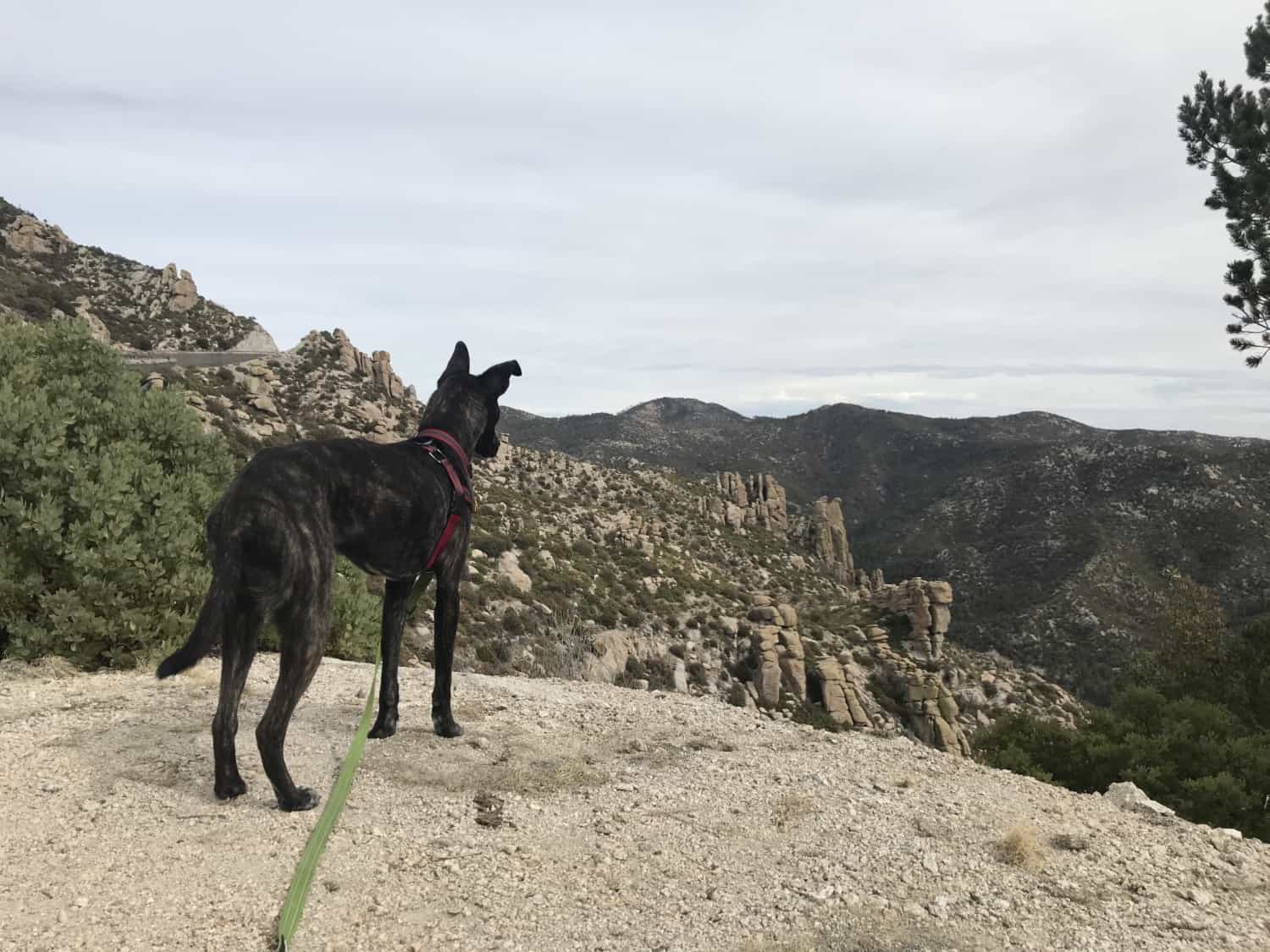
3. Prepare For Weather & Terrain
Reading the reviews for any trails you’re considering will help you prepare for the terrain. And checking the forecast will allow you to consider the weather. When you’re traveling, it’s important not to underestimate how the differences in elevation, humidity, and sun strength will affect you and your dog.
Spring and summer hiking means sun and bugs, so pack sunscreen and insect repellant that’s specially formulated for dogs. Breeds with short coats might appreciate an outer layer if you plan to hike in wet or cold conditions, and dog boots might be necessary if you’re hiking in snow or rough terrain.
READ MORE ⇒ 7 Essentials For Desert Hiking with Dogs
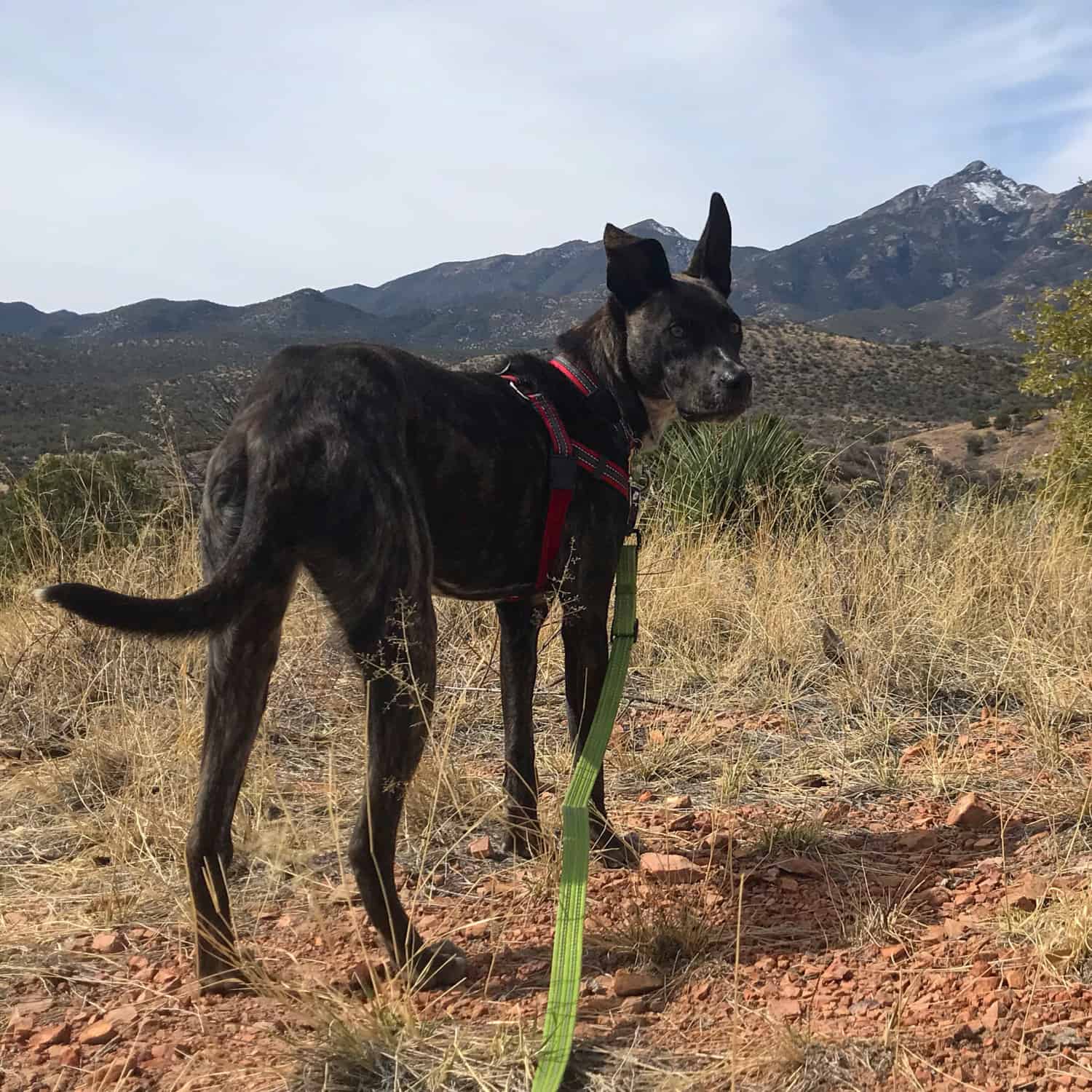
4. Carry Plenty Of Water
Dehydration is serious, so follow the rule was to drink before you get thirsty. And the same applies to your dog. So you’ll need to take plenty of water for you both.
Be careful about allowing your dog to drink from streams or lakes. These water sources contain gnarly parasites that could give your dog severe gastrointestinal issues or worse. Insisting he only drink water you’ve brought along could save you a trip to the vet.
READ MORE ⇒ Recognizing Dehydration And Heat Stroke In Dogs
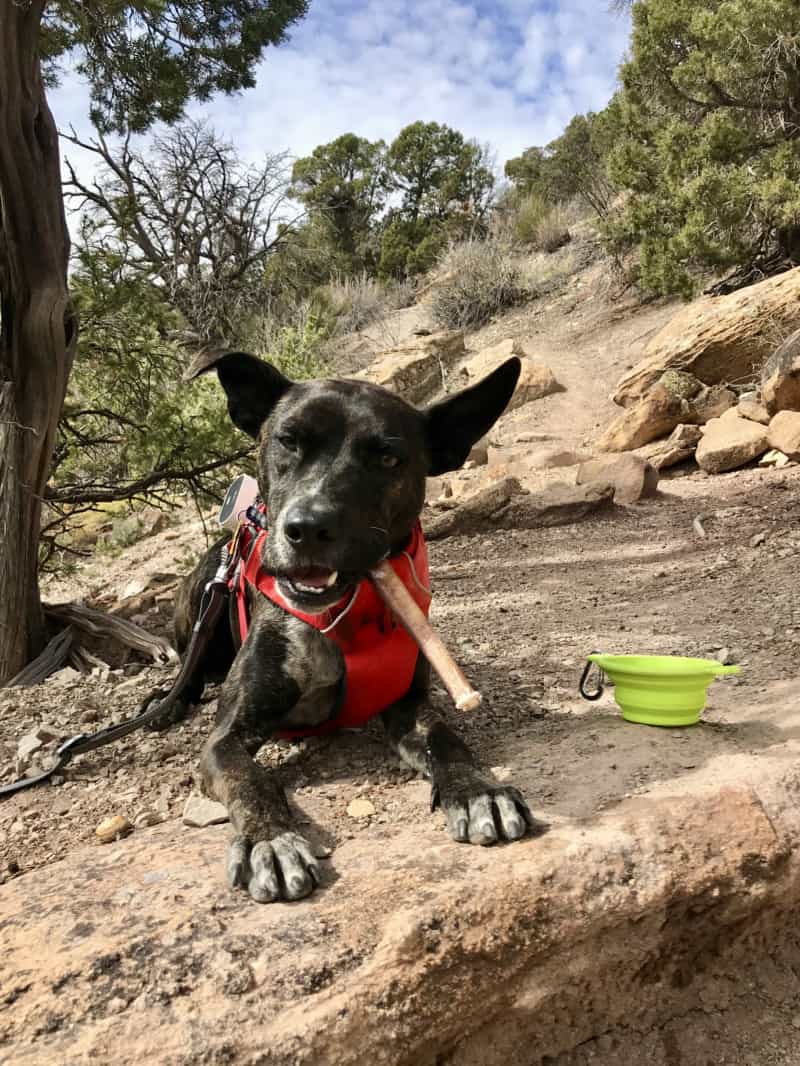
5. Allow Your Dog To Share The Load
Rather than carrying all the water yourself, get your dog a backpack and let him haul his own! Acclimate your dog to the pack by starting with little weight and short walks. When you start hiking, be sure to keep the pack contents and straps adjusted so the weight balanced.
Most dogs can safely carry up to a third of their weight, so be careful not to overload them. Buster loved his backpack, and we appreciated him for packing his and Ty’s water and a collapsible bowl.
READ MORE ⇒ What’s the Best Dog Backpack?
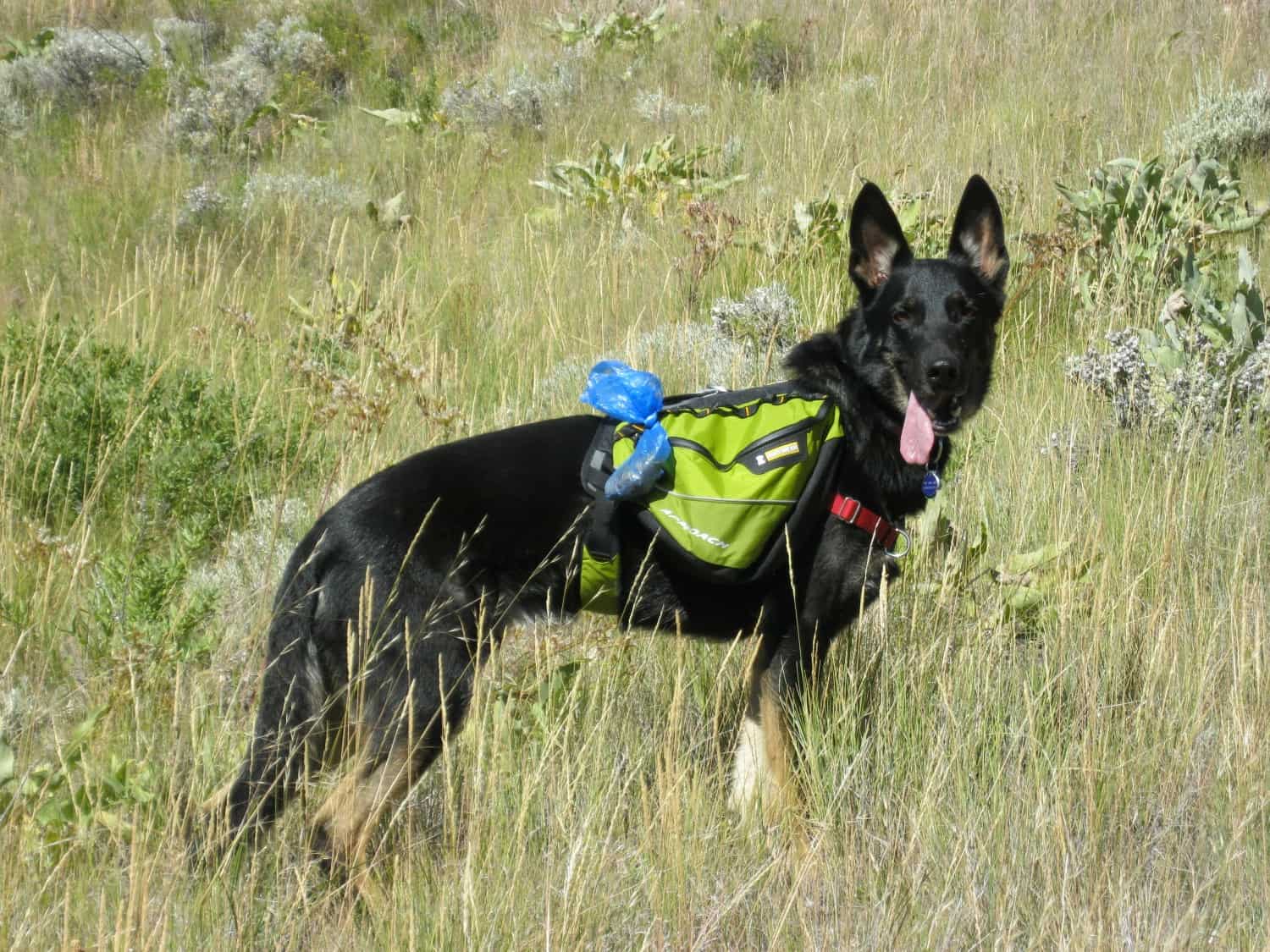
6. Carry A First Aid Kit
A human first aid kit will have most of the supplies you and your dog will likely need for any cuts, bruises, and abrasions. In the event of injured paws, consider adding compression tape or booties. And include an antihistamine after talking to your vet about the proper dosage, in case you or your dog gets bit or stung and has an allergic reaction.
Be sure that you know what’s in your kit and how to use it. The best time to search the kit and read the directions is not when someone is howling in pain!
READ MORE ⇒ Make Your Own Pet First Aid Kit

7. Check Your Dog’s ID
Before heading out, make sure your dog’s ID tag is properly secured to a collar that won’t slip off. The tag should have your cell phone number and any other information that someone might need if they find your dog.
If you know you’ll be leaving cell coverage behind, be prepared with a plan to find your lost dog in a cell phone dead zone.
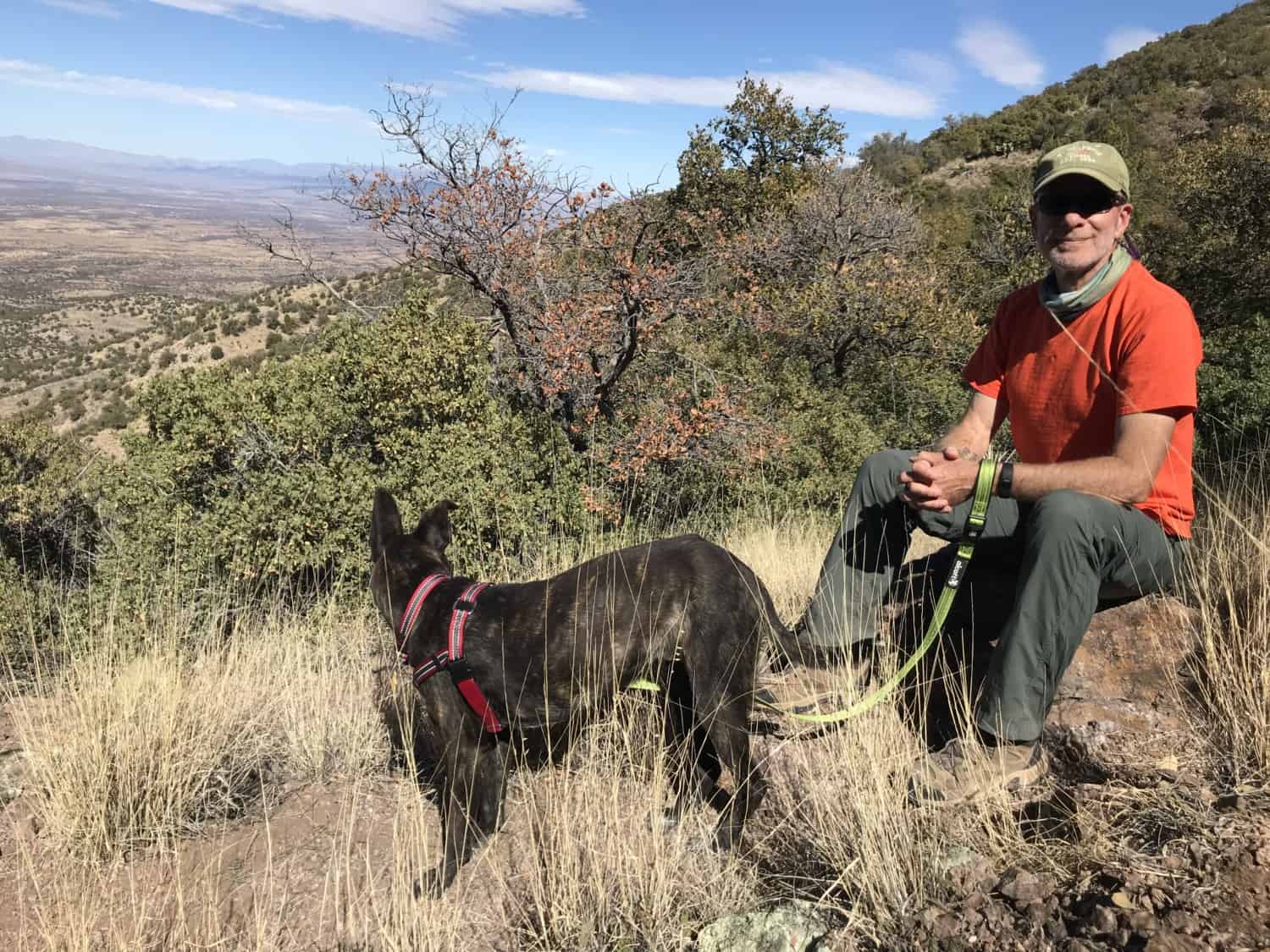
8. Take Extra Care During Hunting Season
Extra precaution are necessary when hiking during any hunting season. A bright or reflective dog vest and bear bells will help keep your pup from being mistaken as a target. You’ll also want to wear something bright that will help you stand out from the natural environment.
During hunting season, it’s also a good idea to keep your dog on leash – even in areas where he’s allow off-leash. This will help him avoid confrontations with any hunting dogs that might be in the area.
9. Leaves Of Three, Let It Be
Just like people, dogs are susceptible to plant-based toxins. And they can pass the oily substance from poison ivy or poison oak to you on their fur. Take a moment to be sure that you can identify the toxic plants common to the area you’ll be hiking.

10. Be Aware Of Wildlife
Your dogs will hear, smell, and sense things before you. If you’re hiking with your dogs and they start barking, they could be warning you about a potential threat in the vicinity. Make yourself aware of what kinds of wildlife you could encounter on your hike, and learn how to avoid confrontations.
If you’re hiking in bear country, fit your dog with bear bells and carry a can of bear spray. And anytime you’re entering an area where bear sightings are possible, always keep your dog in sight and stay alert!
READ MORE ⇒ Encountering Predators on the Trail

11. Let Someone Know Where You’re Going
Stuff happens! If, for some reason, you’d needed assistance during your hike, having a relative, friend, neighbor, or park ranger know where you’re going and when you expect to return is a big help. Printing this information on a note card with relevant contact numbers and leaving it in your car is also helpful.
When you’re hiking a new trail, carry a copy of the trail map or take a photo of the map at the trailhead and take the park phone number with you during your hike. If you end up lost on a trail, you’ll be glad you did! Calling the ranger for directions might be embarrassing, but it could save you from spending a night under the stars.
An app like Runkeeper, which tracks exactly where you’ve hiked, can also be helpful. If at any point you need to backtrack, it will show where you are and the route you’ve covered.
If you’re relying on your phone to track your route, take mini portable battery pack along to recharge your phone.
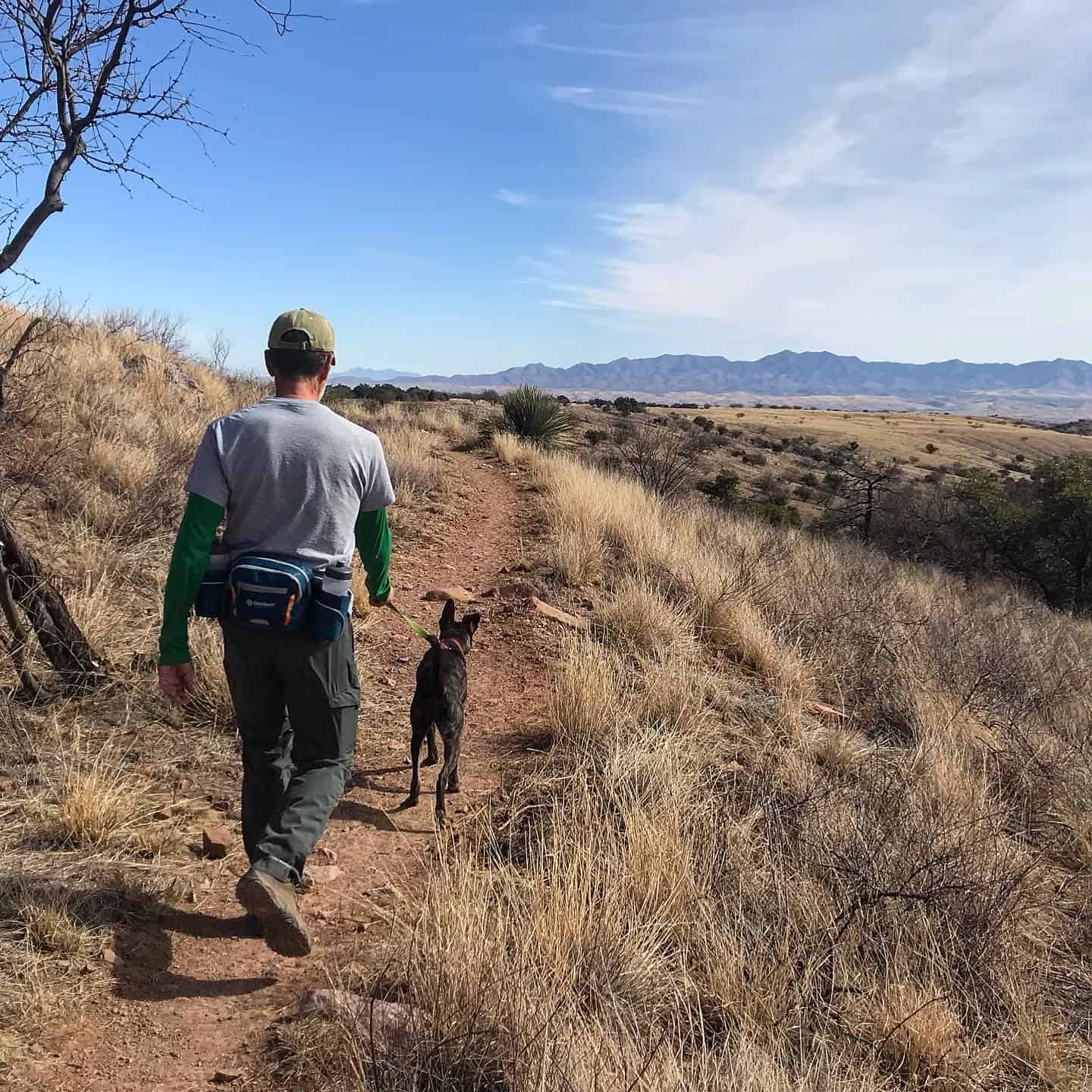
12. No One Should Be Able To Tell You Went Hiking With Your Dogs
All trash and dog waste should be bagged, carried out, and disposed of properly. Don’t leave any evidence that you and your dog were on the trail.
13. Check For Ticks After Hiking
If you’re hiking in a place with ticks, know that a bite can cause severe medical problems such as Lyme disease and Rocky Mountain spotted fever. And both of these diseases can be contracted by both dogs and humans.
Talk to your vet about an appropriate prevention program if you’re planning a trip to a place where ticks are common. And be sure to examine yourself and your dog after hiking in wooded areas where ticks are found.
READ MORE ⇒ Lyme Disease And Dogs – What You Need To Know About Ticks

To make these dog friendly hiking tips easy to remember, our friends at PetHub created a handy info graphic:

We hope these tips for hiking with dogs help make your next adventure the best yet!
